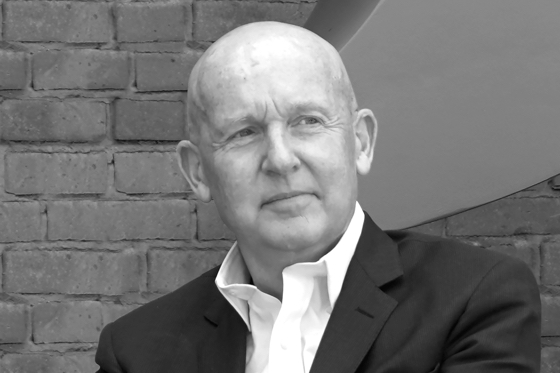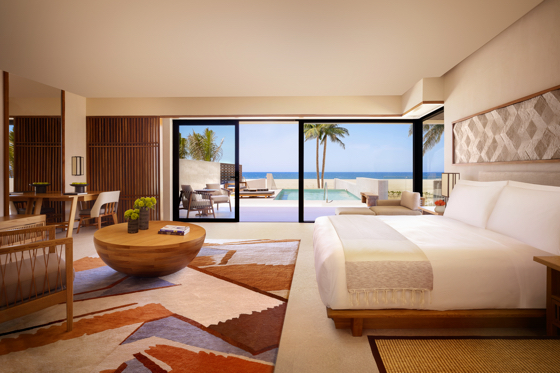The Nobu luxury hotel chain is on an expansion tear following its launch at Caesars Palace, Las Vegas in 2013. The hotels ride the reputation of high-end Nobu restaurants, pioneered by chef Nobu Matsuhisa in the 1990s.
New York City-based Nobu Hotels is also backed by actor Robert DeNiro and movie producer Meir Teper, giving the chain a good dose of celebrity cache. The group counts 41 restaurants and nine hotels, with another nine in the pipeline and openings slated this year for Barcelona, Chicago and Riyadh.
In a recent interview with HOTELS, CEO Trevor Horwell discussed the brand’s strategy and what Nobu’s customers want: “They are not searching for points,” Horwell says.
HOTELS: What is the importance of celebrity presence?
Trevor Horwell: A lot of people say that it’s a factor, but Nobu as a brand stands by itself. It’s about the customer, the repeat factor, brand awareness. Then it’s the business model, playing to our strength, which is food and beverage. We make big numbers.

H: What kind of numbers are we talking about?
TH: Food and beverage probably average 50% of revenues, while 20% to 25% is more typical for full-service hotels. Last year, occupancy for the group was in excess of 75%, and we had an average room rate north of US$400. We’ve had good RevPARs all over the country. We find our customers are less price-sensitive and want to go to a brand they know and trust. They are not searching for points. If we can retain a Nobu restaurant customer for life we want to do the same in our hotels. Because our hotels are smaller — the sweet spot is 150 keys — it’s more about the personal relationships.
H: Who are your customers?
TH: Gen X and millennials — ages 22 to 50 — represent 70% of guests. But we still have a lot of baby boomers. Our customer is global. When we launched our residences in Toronto, 80% of the buyers were international, 30% were from Asia. We try to convert our restaurant customers to stay with us.
H: How many Nobu hotels do you envision?
TH: We could be in 50 cities. We won’t go into secondary locations — that would be diverting our attention and we wouldn’t make money. Good volumes of 100,000 customers a year are needed and we can’t get that in secondary cities. The restaurants can’t survive on tourists. About 70% to 80% of the restaurant business is from locals. We don’t want to be cookie cutter or commoditize the brand.
H: What is your geographical mix?
TH: We’ve started in the United States and are working on Europe. We have Ibiza Bay and Marbella, both in Spain, and will open a second location in London. We had an opportunistic deal in Manila but Asia is a tough place. Room rates are not strong in Indonesia, Thailand and Taipei. We will get there, but we have to be careful how we do it.
H: Nobu is known for its innovative cuisine beyond sushi – with signature preparations of seafood, meat and vegetables. What do you do for breakfast?
TH: We have a Nobu breakfast. We have traditional bacon and eggs, but we have dishes with Asian flavors. [Nobu Malibu, for example, offers a rice bowl topped with salmon, nori and ikura, a breakfast bento box and green tea waffles].

H: Forecasters report hotel industry growth is slowing as new supply comes online. Are you anticipating a softening in demand and in rates?
TH: In the last downturn [in 2008-09 the Nobu hotels weren’t yet open] we dropped 3% to 4%. But the next year we ramped up and were higher than we had ever been. We have a bit of an edge in that we make money in food and beverage, and people want to spend money on food. A downturn is likely to hurt big chains.
H: Nobu has avoided starting a loyalty program. What’s the thinking?
TH: We don’t need to have it. We’re giving you the best experience you can have. We try to recognize our guests, we want the general manager to know who is coming, who is a repeat customer. When I go to a hotel, I don’t book out of loyalty. I go because the location is good, the experience is good, I like the staff and the culture. Loyalty schemes can be tough to administer and become a liability.
H: The hotel group sold its first residences. Will you do more of this?
TH: In Toronto, we sold 500 units in three months. We’ll do more residences because we want locals who enjoy having Nobu on site. It’s part of the lifestyle experience.
H: How do you nurture and retain talent?
TH: We don’t hire from luxury competitors or Michelin-starred restaurants. We grow people from within, from the restaurants. We had a barman who sent me some of his videos, and now he does videography for us. Our priority is finding young talent — hiring those who would fit with the culture but more so it’s retaining them in an industry that has high turnover. Whatever you want to do [to pursue your career] we’re there to help you.

